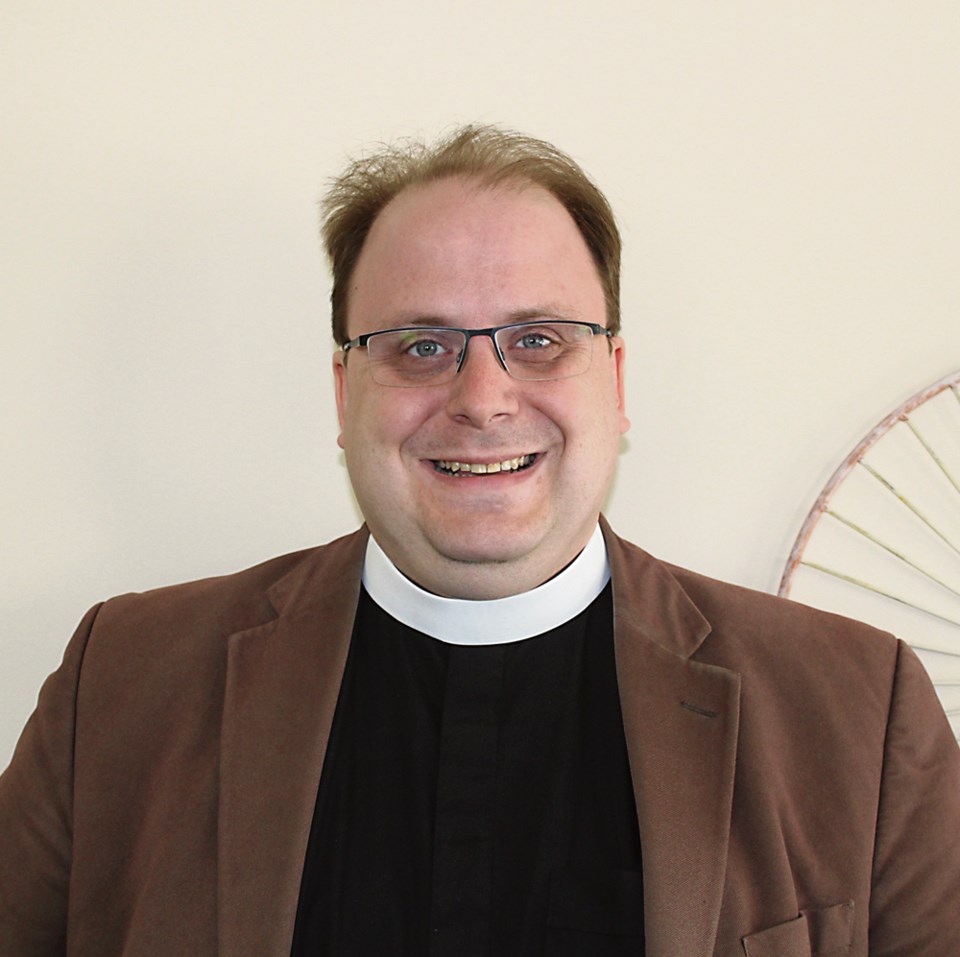As you may know, the Sunday before Easter is known as Palm Sunday. It’s the day of the church year where we commemorate Jesus’s triumphal entry into Jerusalem. This is known as the beginning of “Holy Week”, the last week of Jesus’ life, which includes Maundy Thursday (when we commemorate the institution of the Last Supper), Good Friday (when Jesus is crucified), and Holy Saturday/Easter Sunday (when Jesus rises from the dead.) This is one of the most solemn weeks for Christians throughout the world.
The striking image of Palm Sunday that many of us have is of Jesus riding on a donkey in a parade on his way into Jerusalem. For a lot of us, we tend to equate this with what we would know as a parade, something like the Reston Fair, where there are lots of floats coming down 4th Street. However, I don’t think it was quite like that: it was a few people welcoming their Saviour. There were cloaks strewn on the road, and palms scattered in front of the donkey, but it was nothing like anything that we would have today.
If you wanted pomp and circumstance, that was coming in too, but it had nothing to do with Jesus and his merry band of followers. That was coming in on the other side of town. The Roman army would normally come into Jerusalem around the high holy days of Judaism. Pontius Pilate entered the city especially for Passover, to keep the peace and subdue the people—to be a presence of occupation on the day when they remembered being set free from bondage. This was to preserve the “Pax Romana” – the peace of Rome. This wasn’t like the peace like you and I know this day: it was more of a nervous peace. Step out of line and the full force of the Roman Empire would come crashing down on you.
Palm Sunday begins the dramatic events of Holy Week – with a scene where two opposing sides find themselves at the top of an allegorical valley of the shadow of death. On one side: a culture of humility and service, and on the other side, a culture of domination, power and prestige. As we descend into that metaphorical valley of darkness once again, let us do so knowing that we already know how the story ends – that the light shineth in the darkness, and the darkness did not overcome it.
These words are helpful, I think, for us to hear as we find ourselves mired in the midst of darkness, or at least more darkness than we’re used to. However, there is always light in the midst of darkness. Even though we may be separated from the churches that we adore, separated from the activities we enjoy, separated from those we love and cherish, nothing, not even COVID-19 will separate us from the love of God in Christ Jesus our Lord. While in the meantime, things may be a bit rough, we will survive this, of that I am sure.
What can I do in the meantime, though, you may be asking me. Yes, we are practising physical distancing (and more frequent handwashing), but I can’t emphasize enough that that doesn’t mean that we become socially distant from one another. While weren’t not able to gather at the café for a cup (or more) of coffee or gather for coffee with others in homes, we can reach out with phone calls, emails, video chats. I know that for me, one of the highlights of my day is when I get to speak (and pray with) some friends via video chat. It’s not as good as all of us gathering around a table having a beer, but in the meantime, it’s helping me navigate this distancing from everybody (which is hard as an extrovert!)
I also think it helps to acknowledge the feelings that we’re feeling – many of us are feeling anxious, scared, mad, or any number of other feelings. It’s okay to feel these feelings – these are a normal part of the human experience. I invite you to hold yourself gently during these times, and remember one of the lessons of Palm Sunday and Holy Week: that even in the midst of great darkness, there is always light, and that no matter how dark things get, nothing will be able to separate us from the love of God: not even COVID-19.
Rev. Matt Koovisk - St. Mary's Anglican Church




